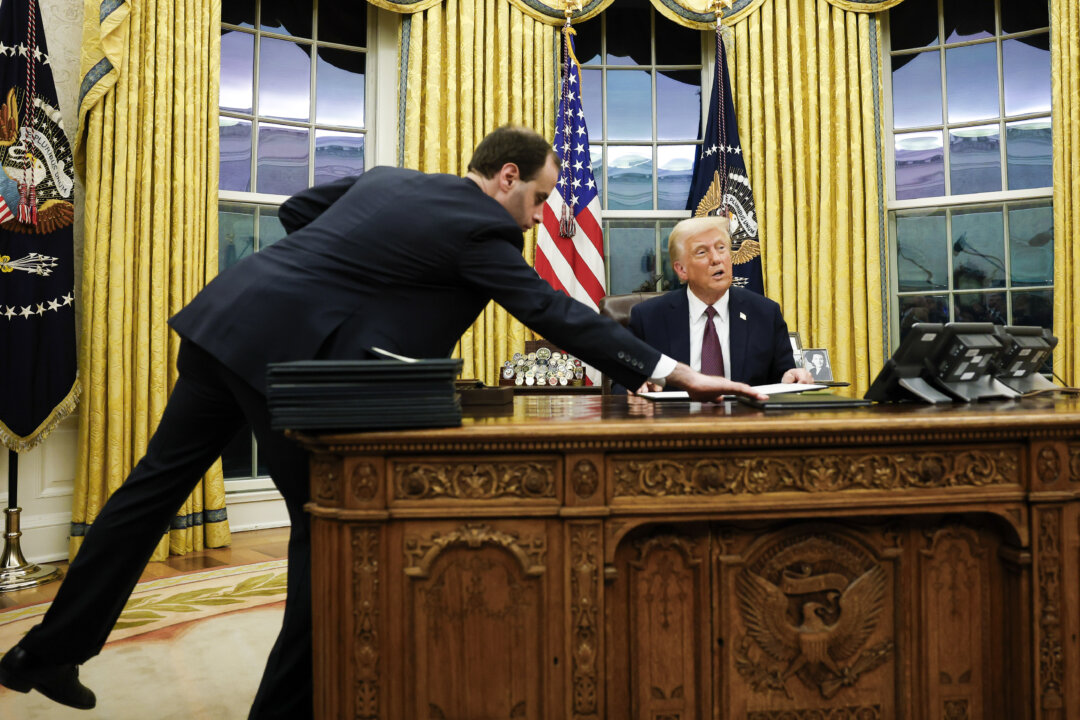The president signed the order just hours after he was sworn into office on Monday.
President Donald Trump on Monday evening suspended U.S. foreign aid for 90 days, pending further review to determine whether those programs align with American interests.
“All department and agency heads with responsibility for United States foreign development assistance programs shall immediately pause new obligations and disbursements of development assistance funds,” said the executive order signed by Trump hours after he took office, according to a readout on the White House website.
The reason for the order, according to the readout, is that the U.S. government’s foreign policy is “not aligned with American interests and in many cases antithetical to American values.”
“They serve to destabilize world peace by promoting ideas in foreign countries that are directly inverse to harmonious and stable relations internal to and among countries,” it states.
“It is the policy of United States that no further United States foreign assistance shall be disbursed in a manner that is not fully aligned with the foreign policy of the President of the United States.”
Based on the text, it is not immediately clear how broad the order is or what countries, programs, organizations, or other entities would be affected by the decision.
The president is calling for a review of those programs to determine whether they have “programmatic efficiency” and to see whether they are consistent with U.S. foreign policy, directing the Office of Management and Budget (OMB) to “enforce this pause.” It also includes a waiver for Secretary of State Marco Rubio’s office to waive any rules for certain programs.
Funding for certain foreign aid programs can be resumed before the 90-day period is up if an appropriate review is conducted and the OMB director or secretary of state’s office determines they should be continued, the order said.
Trump has long said that the U.S. government is providing too much aid to foreign countries, often repeating that the United States has been involved in deals that are not to its benefit.
During the annual gathering of world leaders at the United Nations in 2018, Trump, in his first term, said that the United States was the largest foreign aid donor, “but few give anything to us.”
“That is why we are taking a hard look at U.S. foreign assistance,” he said at the time. “Moving forward, we are only going to give foreign aid to those who respect us and, frankly, are our friends. And we expect other countries to pay their fair share for the cost of their defense.”
Trump has also pushed for members of NATO, of which the United States is a founding member, to allocate more funding to defense. Earlier this month, he told reporters at a press event at his Mar-a-Lago estate in Florida that “they can all afford it, but they should be at 5 percent, not 2 percent.”
The last official accounting of foreign aid in the Biden administration dates from mid-December and budget year 2023. It shows that $68 billion had been obligated for programs abroad that range from disaster relief to health and pro-democracy initiatives in 204 countries and regions.
Some of the biggest recipients of U.S. assistance are Middle Eastern and North African countries, such as Israel, which gets $3.3 billion per year; Egypt, which gets $1.5 billion per year; and Jordan, which receives $1.7 billion per year.
The Associated Press contributed to this report.

